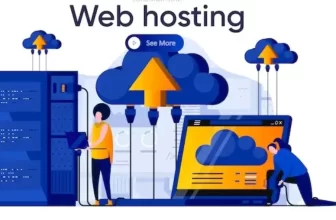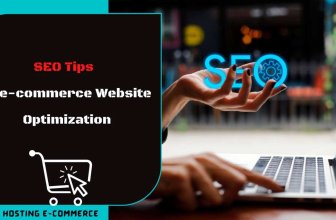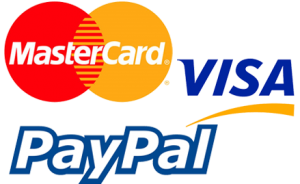
Having an ecommerce website that performs optimally is crucial for attracting and retaining customers. Online shoppers expect quick loading times, seamless navigation, and an overall enjoyable browsing experience. To meet these expectations, ecommerce businesses need to focus on optimizing their website’s performance. If you’re a hosting user looking to enhance your ecommerce website’s speed and efficiency, you’re in the right place. In this article, we’ll explore essential tips and strategies to help you achieve top-notch website performance.
Ecommerce websites are the lifeblood of businesses operating in the digital realm. However, no matter how impressive your products or services are, if your website is slow and unresponsive, potential customers are likely to turn away. This article aims to provide hosting users with actionable insights to enhance their ecommerce website’s performance, ensuring a seamless shopping experience for visitors.
Table of Contents
Importance of Website Performance in Ecommerce
A slow-loading website can have a detrimental impact on your ecommerce business. Studies show that a delay of just a few seconds in page load time can lead to increased bounce rates and decreased conversion rates. Customers expect rapid access to product information and an efficient checkout process. Thus, website performance directly affects user satisfaction, search engine rankings, and ultimately, revenue.
Choosing the Right Hosting Plan
Selecting the appropriate hosting plan is a foundational step in optimizing website performance. Shared hosting, VPS hosting, and dedicated hosting offer varying levels of resources and control. For ecommerce websites, investing in VPS or dedicated hosting can significantly improve loading times and site stability.
Utilizing Content Delivery Networks (CDNs)
Content Delivery Networks, or CDNs, distribute website content across multiple servers globally. By delivering content from the server closest to the user, CDNs reduce latency and improve loading times. This is particularly valuable for ecommerce websites with an international customer base.
Optimizing Images and Media Files
High-resolution images and unoptimized media files can slow down your website. Compressing images and utilizing modern image formats like WebP can significantly reduce file sizes without compromising quality.
Minimizing HTTP Requests
Each element on a webpage requires an HTTP request, which can accumulate and slow down loading times. Combining CSS and JavaScript files and reducing the number of elements on a page can help minimize these requests.
Implementing Browser Caching
Browser caching stores static resources on a user’s device, allowing for quicker loading upon subsequent visits. This is especially effective for returning visitors, as their browsers won’t need to fetch all resources again.
Reducing Server Response Time
A long server response time can delay the rendering of a webpage. Optimize your server’s performance by using a fast web server, reducing database queries, and utilizing caching mechanisms.
Streamlining Website Design and Layout
A cluttered and complex design can hinder website performance. Prioritize a clean and streamlined design that enhances user experience and promotes easy navigation.
Mobile Optimization
With the rise of mobile shopping, ensuring your website is mobile-responsive is crucial. Google’s mobile-first indexing also considers mobile optimization when ranking websites in search results.
Regular Performance Monitoring and Maintenance
Performance optimization is an ongoing process. Regularly monitor your website’s speed and functionality, and address any issues promptly. Regular updates and maintenance will keep your website running smoothly.
Leveraging Browser Compression
Gzip and Brotli are compression algorithms that reduce the size of website files during transmission. Implementing browser compression can significantly speed up loading times for users.
Managing Plugins and Third-Party Integrations
While plugins and third-party integrations can add functionality to your ecommerce website, they can also introduce excess code and slow down performance. Choose essential plugins and ensure they are regularly updated.
Security Measures and Performance
Implementing robust security measures, such as SSL certificates and firewall protection, not only enhances security but also positively impacts website performance. Secure websites tend to load faster, as they are trusted by browsers and search engines.
Conclusion
In the highly competitive world of ecommerce, website performance can make or break your business. By choosing the right hosting plan, utilizing CDNs, optimizing media files, and following other strategies outlined in this article, you can create a lightning-fast and efficient ecommerce website that keeps customers engaged and encourages conversions.
FAQs
Q. Why is website performance crucial for ecommerce success?
A. A fast-loading website enhances user experience, boosts search engine rankings, and increases conversions.
Q. What is the role of CDNs in ecommerce website optimization?
A. CDNs distribute website content globally, reducing latency and improving loading times for users worldwide.
Q. How can I optimize images without compromising quality?
A. Use image compression techniques and consider using modern formats like WebP.
Q. Why should I regularly monitor my website’s performance?
A. Regular monitoring helps identify issues promptly, ensuring your website remains fast and functional.
Q. What is the impact of security measures on website performance?
A. Implementing security measures not only enhances safety but also contributes to faster loading times and improved trust from users.










